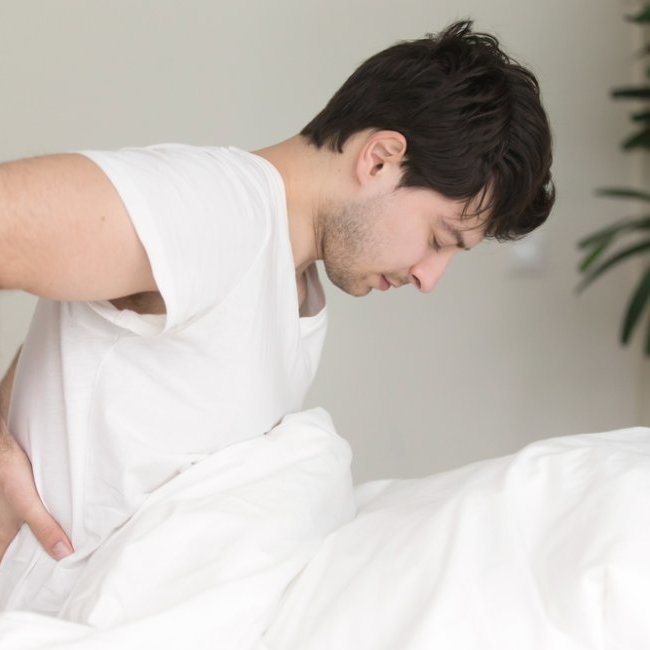


Physicians
Physiatry
Spine (non-operative)
 Healthgrades
Healthgrades
Physiatry
Spine (non-operative)
 Healthgrades
Healthgrades
Orthopedic Surgery
Spine & Neck
 Healthgrades
Healthgrades
PA's, APN-C and LPN's
Body parts
Your spine has a big job. It supports your entire body and protects your organs while letting you bend, twist, walk and run freely. It’s made up of small bones (vertebrae) stacked on top of each other with soft, flexible gel-filled discs in between.
Discs can bulge out of position or herniate, leaking fluid from the soft inner aspect of the disc through the tough outer membrane. Herniated discs are sometimes referred to as “slipped” or “ruptured.” You can have a bulging or herniated disc and never know it. But when a damaged disc impinges on a nerve, it can be painful. When worn-out discs cause back pain, you may be diagnosed with degenerative disc disease.
Your symptoms can depend on where the damaged disc is located.
A degenerated disc in the lumbar (lower) part of the back can cause pain, tingling or numbness in your buttocks or legs.
If the damaged disc is in the cervical region (neck area), you may feel pain, tingling or numbness in your neck, shoulders and arms.
If a degenerated disc is in the middle of the back, opposite the chest, it can cause chest or stomach pain.
With severe forms of degenerative disc disease, moving around can be difficult. In critical cases, the bulging or herniated disc may affect the cauda equina nerve complex at the base of the spine, which can cause your legs to become weak or numb. You might also have bowel or bladder issues. Loss of bowel or bladder control is an emergency that requires immediate evaluation by a physician.
If your pain is constant or interferes with your daily life, the orthopedic spine specialists at The Orthopedic Institute of New Jersey (OINJ) can help. The diagnostic process begins with a physical exam and evaluation, which will lead to the right diagnosis and a personalized treatment plan.
A physical exam helps determine the cause of the pain and where it’s coming from. Pain from degenerative disc disease often responds well to non-operative treatment, such as activity modification to avoid painful positions, over-the-counter anti-inflammatory medications, and physical therapy and home exercises to improve your core strength and posture.
In more severe cases, your spine doctor may order tests, such as an X-ray, a CT scan, MRI, and/or a myelogram--an X-ray or CT scan that follows the electrical pulses from a nerve as it travels to see its effect on the spine.
Other kinds medication can also be prescribed, such as anticonvulsants for radiating pain, muscle relaxants for muscle spasms and oral steroids or a cortisone injection to reduce swelling and inflammation to improve your range of movement with less pain.
Physical therapy can also be effective for most everyone with degenerative disc disease. If your bulging or herniated disc affects the cervical zone (your neck area), your OINJ back doctor may recommend a form of traction in which your head is pulled gently away from your neck to allow the bones to reposition. This manipulation gives the small bones in the neck space to spread.
In rare cases, surgery may be recommended. Surgical treatment for lumbar degenerated disc disease depends on your symptoms as well as the extent of the degeneration. If your symptoms are primarily lumbar radiculopathy from a herniated disc pressing on your nerve root, then isolated removable of that disc (“discectomy”) may be all that is necessary. If the degenerated disc itself is causing back pain, then disc replacement or fusion of that level may be performed.